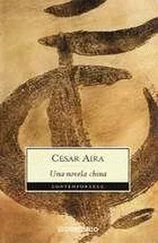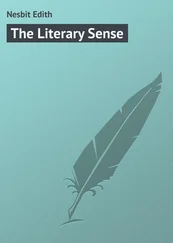César Aira
The Literary Conference
ON A RECENT trip to Venezuela I had the opportunity to admire the famous “Hilo de Macuto” or “The Macuto Line,” one of the wonders of the New World — a legacy left by anonymous pirates, a tourist attraction, and an unsolved enigma. A strange monument to human ingenuity that remained a mystery for centuries and, in the process, became an integral part of a Nature that at those latitudes is as rich as all the innovations to which She gives rise. Macuto itself is one of several coastal towns spread out at the foot of Caracas and adjacent to Maiquetía, where the airport I landed in is situated. They put me up temporarily at Las Quince Letras, the modern hotel built on the beach in front of the bar and restaurant of the same name. My room faced the sea, the enormous yet intimate Caribbean Sea, blue and brilliant. The “Line” passed a hundred yards in front of the hotel; I caught a glimpse of it from my window, then went out to take a closer look.
Throughout my childhood, I, like every child of the Americas, indulged in vain speculations about the Macuto Line, a living relic through which the fictional world of pirates became real and tangible. Encyclopedias — mine was A Childhood Treasury, which didn’t deserve its name except in those pages — contained diagrams and photographs, which I reproduced in my notebooks. And in my games I would untie the knot, reveal the secret. . Much later, I watched documentaries about the Line on television; I bought books on the subject and came across it many times during my studies of Venezuelan and Caribbean literature, where it appears as a leitmotif. I also followed, along with everyone else (though without any special interest), newspaper articles about new theories, new attempts to solve the enigma. . The fact that new ones were continually cropping up was a clear indication that the previous ones had failed.
According to the age-old legend, the Line was devised to recover a treasure from the deep sea, a haul of immense value placed there by pirates. One of the pirates (none of the chronicles and archives used in the research identified him by name) must have been an artistic-scientific genius of the first order, a shipboard Leonardo, to have invented such a marvelous instrument that could both hide and recover the loot.
The apparatus was ingeniously simple. It was, as the name states, a line, a single line, in reality, a rope made of natural fibers stretched about three yards above the surface of the water over a marine basin off the Macuto coast. One end of the rope disappeared into the basin, then reappeared when it passed through a naturally occurring stone sheave in a rock that rose above the surface of the water about two hundred yards from shore; from there it returned to shore, where it made a somersault of slipknots through an “obelisk” — also natural — then rose to the peaks of two mountains in the coastal range, whence it returned to the obelisk, thereby forming a triangle. The contraption had remained intact for centuries — without needing restoration or any specialized maintenance; on the contrary, always impervious to gross and even brutal mishandling by treasure hunters (everybody, that is), predators, the merely curious, and legions of tourists.
I was just one more. . The last, as we shall see. I was quite excited to find myself face to face with it. It doesn’t matter what you know about a famous object — being in its presence is altogether a different story. You must find that sensation of reality, peel back the veil of dreams — which is the substance of reality — and rise to the occasion of the moment, the Everest of the moment. Needless to say, I am not capable of such a feat, I, less than anybody. In any case, there it was. . gorgeous in its invincible, tense, and lean fragility, capturing the ancient light of navigators and adventurers. I was also able to ascertain the truth of its reputation: it was never completely silent. On stormy nights the wind made it sing, and those who heard it during a hurricane became obsessed for the rest of their lives with its cosmic howls. Sea breezes of all kinds had strummed this lyre with a single chord: memory’s handmaiden, the wind. But even that afternoon, when the air was utterly still (if a bird had dropped a feather, it would have fallen to the ground in a straight line), its murmurings were thunderous. They were solemn and sharp microtones, deep within the silence.
My presence there, in front of the monument, had enormous consequences: objective, historical consequences; not only for me but for the entire world. My discreet, unassuming, fleeting presence, almost like that of any other tourist. . Because that afternoon I solved the enigma, activated the slumbering device, and recovered the treasure from the depth of the sea.
It is not that I am a genius or exceptionally gifted, not by any means. Quite the contrary. What happened (I shall try to explain it) is that every mind is shaped by its own experiences and memories and knowledge, and what makes it unique is the grand total and extremely personal nature of the collection of all the data that have made it what it is. Each person possesses a mind with powers that are, whether great or small, always unique, powers that belong to them and to them alone. This renders them capable of carrying out a feat, whether grandiose or banal, that only they could have carried out. In this case, all others had failed because they had counted on the simple quantitative progression of intelligence and ingenuity, when what was required was an unspecified quantity, but of the appropriate quality, of both. My own intelligence is quite minimal, a fact I have ascertained at great cost to myself. It has been just barely adequate to keep me afloat in the tempestuous waters of life. Yet, its quality is unique; not because I decided it would be, but rather because that is how it must be.
This is and always has been the case in just this way with all people, at all times, everywhere. A single example taken from the world of culture (and what other world should we take it from?) might help clarify this point. An intellectual’s uniqueness can be established by examining their combined readings. How many people can there be in the world who have read these two books: The Philosophy of Life Experience by A. Bogdanov, and Faust by Estanislao del Campo? Let us put aside, for the moment, any reflections these books might have provoked, how they resonated or were assimilated, all of which would necessarily be personal and nontransferable. Let us instead turn to the raw fact of the two books themselves. The concurrence of both in one reader is improbable, insofar as they belong to two distinct cultural environments and neither belongs to the canon of universal classics. Even so, it is possible that one or two dozen intellectuals across a wide swathe of time and space might have taken in this twin nourishment. As soon as we add a third book, however, let us say La Poussière de soleil by Raymond Roussel, that number becomes drastically reduced. If it is not “one” (that is, I), it will come very close. Perhaps it is “two,” and I would have good reason to call the other “mon semblable, mon frère.” One more book, a fourth, and I could be absolutely certain of my solitude. But I have not read four books; chance and curiosity have placed thousands in my hands. And besides books, and without departing from the realm of culture, there are records, paintings, movies. .
All of that, as well as the texture of my days and nights since the day I was born, gave me a mental configuration different from all others. And it just so happened to be precisely the one required to solve the problem of the Macuto Line; to solve it with the greatest of ease,
Читать дальше












